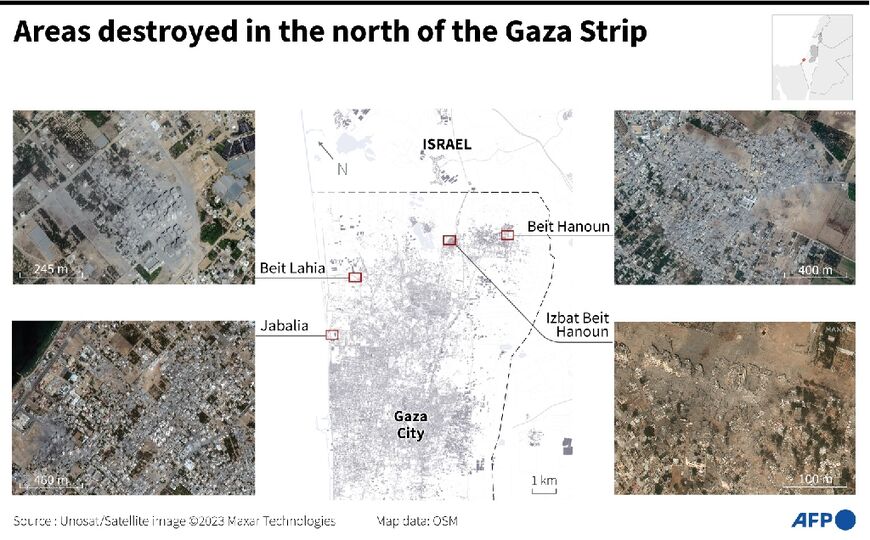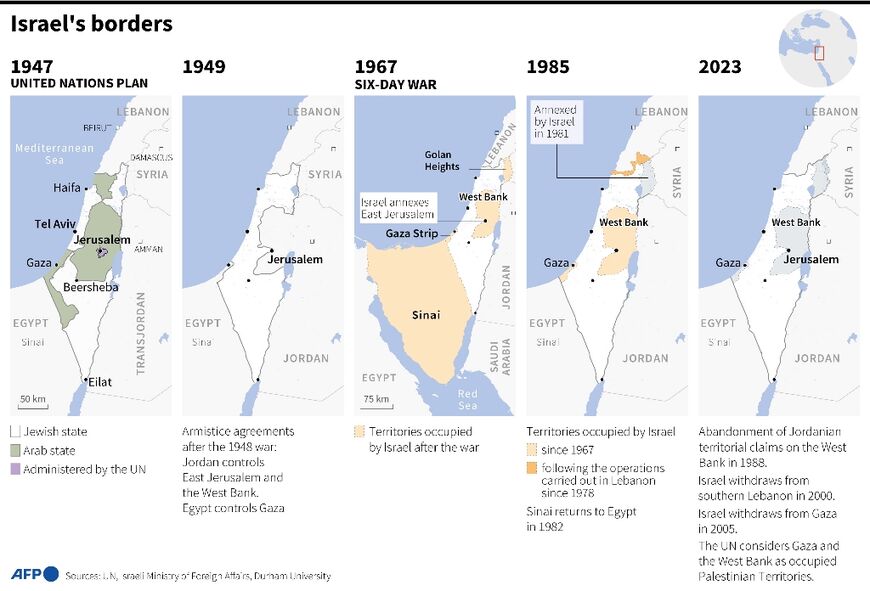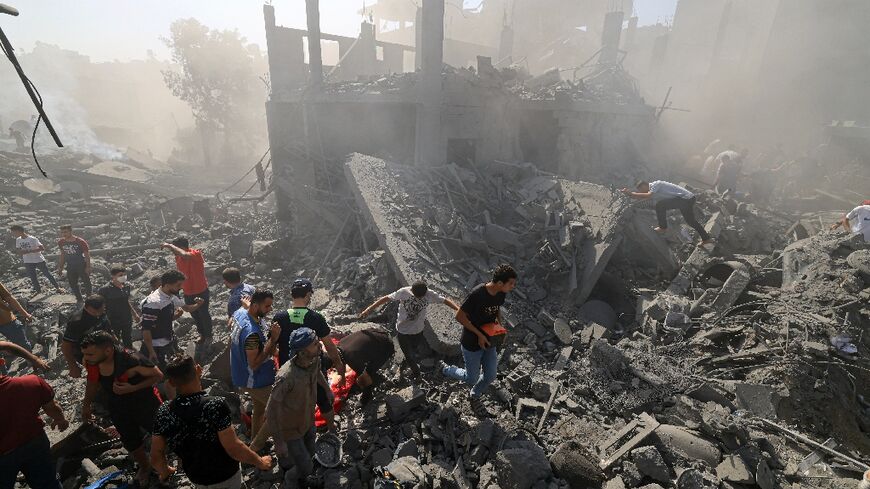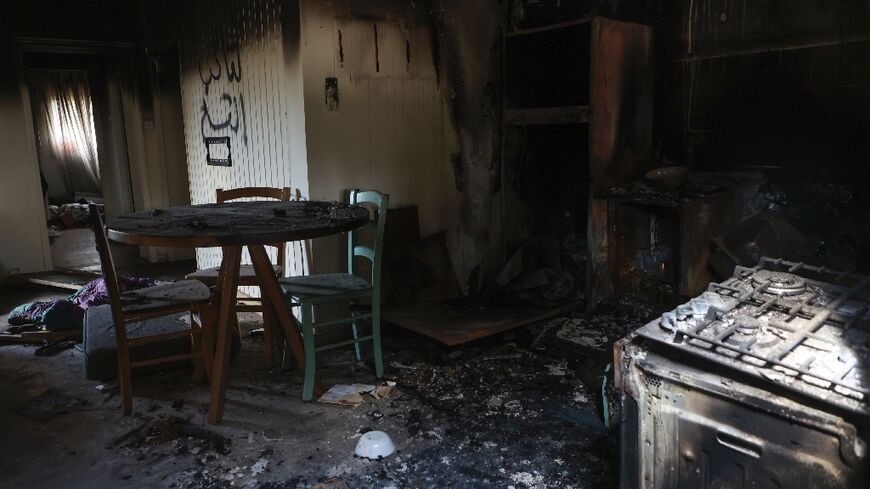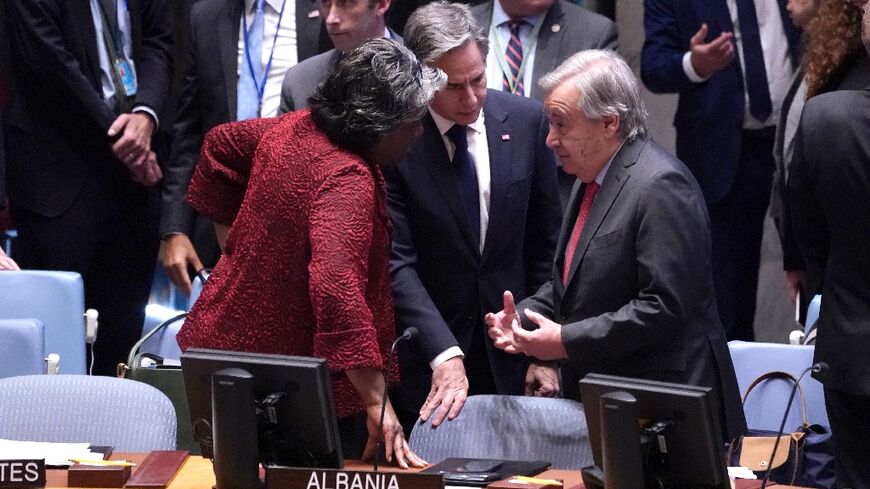Palestinian top diplomat calls Israel offensive 'war of revenge'
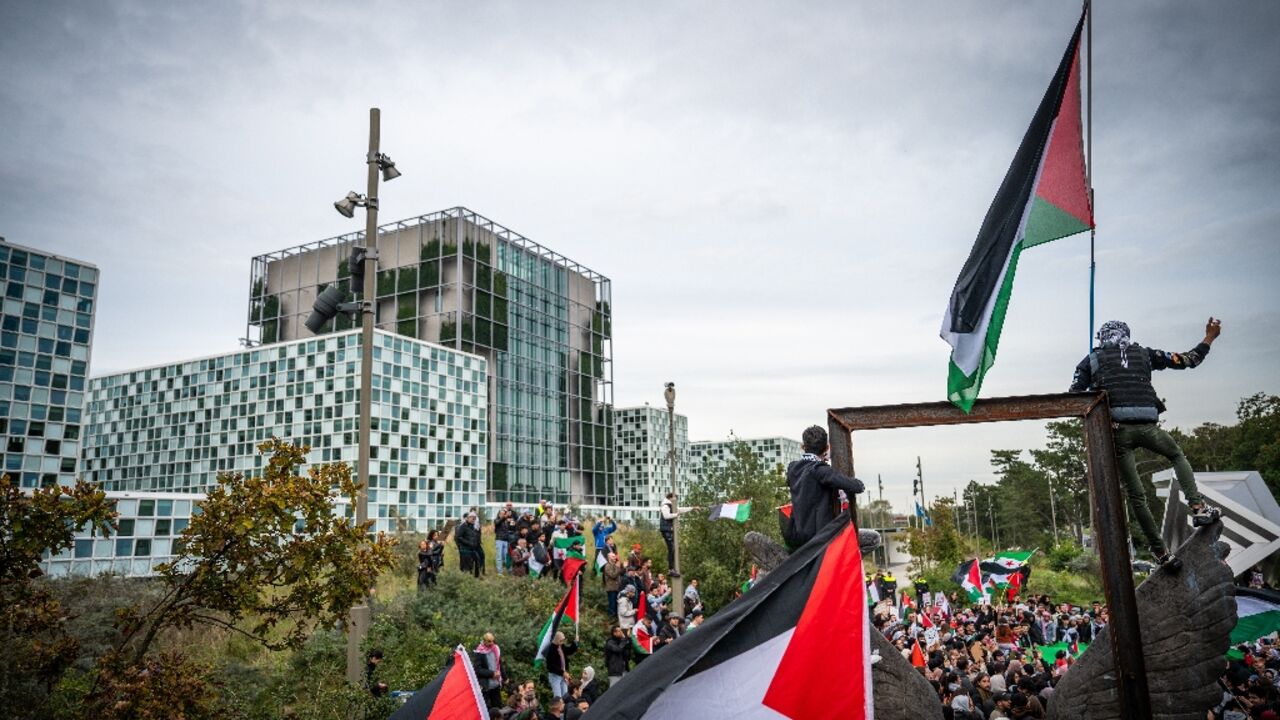
The Palestinian Authority's foreign minister on Thursday said Israel's offensive in Gaza was a "war of revenge", as he called for a ceasefire in the conflict.
The visit of Riyad al-Maliki to the Hague comes as Israel said a column of tanks and infantry had launched an overnight raid into Hamas-controlled Gaza.
It also comes as European Union officials in Brussels debated the situation and were set to call for "humanitarian pauses" in Israel's war with Hamas.
Hamas militants launched a surprise attack on Israel on October 7, killing at least 1,400 people, mostly civilians, according to Israeli officials. They are still believed to be holding more than 200 hostages.
Since then, Gaza's Hamas-run health ministry says more than 7,000 Palestinians have been killed by Israel's relentless retaliatory bombardments, mostly civilians and many of them children.
"This time the war that Israel is waging is different. This time... it's a war of revenge," Maliki said in The Hague.
"This war has no real objective than the total destruction of every livable corner in Gaza," Maliki told reporters at the Palestinian Authority's mission to The Hague.
He said the need for a ceasefire was a top priority to get aid into Gaza, where the main UN agency warned Wednesday operations would cease as it was running out of fuel.
"First we need to end this aggression, this one-sided war and then we need to call for a ceasefire," he said, adding that "a ceasefire is essential... for the distribution of humanitarian aid".
- 'Humanitarian pauses' -
But Maliki stressed that so-called "humanitarian pauses" would not alleviate the humanitarian crisis in Gaza.
European Union leaders were set on Thursday to call for "humanitarian corridors and pauses" in order for aid to reach civilians in Gaza.
Maliki said he was not confident EU officials "would go for a full cease-fire.
"But I am confident that they will have a very serious discussion and they will be able understand the difference between a humanitarian pause and a ceasefire."
"A humanitarian pause is not going to help in bringing in... the necessary distribution of such goods into Gaza."
Maliki also said the only long-term solution in the conflict would be a return to the two-state solution, the framework proposed for separate Israeli and Palestinian states.
"It will be difficult, but not impossible to go to the two-state solution. But what is the alternative?
"We don't have an alternative."
On Wednesday, Maliki met top officials at the International Criminal Court in The Hague, including its chief prosecutor Karim Khan.
"The situation in Gaza is so dangerous now that it needs immediate intervention by the (ICC) prosecutor," Maliki said, accusing Israel of committing war crimes and crimes against humanity.
The Palestinian Authority was "working with the ICC prosecutor", he added.
The Palestinians have made a second submission to the UN's highest International Court of Justice, which is also based in The Hague, he said.
The UN's general Assembly has asked the ICJ's judges for an advisory legal opinion on Israel's occupation in Palestinian territories.


